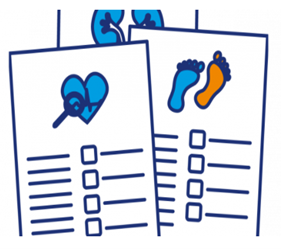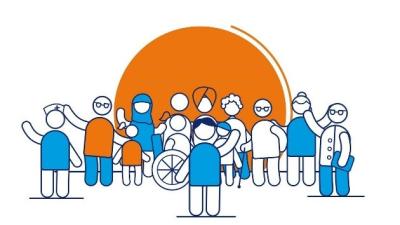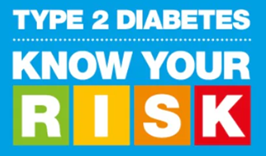Introduction
About the Healthier You: Diabetes Prevention Programme
The Healthier You NHS Diabetes Prevention Programme (NHS DPP) is helping people at high-risk of developing type 2 diabetes (T2D) to become healthier and potentially avoid the condition. It is funded by the NHS and offered free-of-charge to people across England, who live with high risk of developing type 2 diabetes.

Over a minimum of 9 months, participants receive tailored, personalised support with practical tools and advice on healthy eating and lifestyle, increased physical activity and weight management, all of which have been proven to reduce the risk of developing type 2 diabetes.
The identification and referral of people at risk is undertaken by GPs or practice nurses, and individuals aged 18 years or over who have ‘non-diabetic hyperglycaemia’, which is established by a blood test are eligible for the service. Women who have previously had gestational diabetes. and normoglycaemia) are also eligible for the programme.
Between July 2020 and November 2022, the Primary Care referral route was supplemented with a self-referral pathway. The self-referral pathway was temporarily available as a response to the COVID-19 pandemic to reduce pressure on primary care. Individuals were able to self-refer onto the programme by completing the type 2 diabetes risk assessment ‘Know Your Risk’ on the Diabetes UK website or within local service providers websites. Anyone scoring at or above the risk threshold (16 or above), aged 18-79, not pregnant and did not have a current Type 2 diabetes diagnosis, were eligible to self-refer.
About this insight gathering exercise
In February 2022 Diabetes UK conducted an insight gathering exercise to explore the drivers and motivations of participants who self-referred onto the Healthier You NHS Diabetes Prevention Programme.
A short survey and two focus groups were conducted with participants who had self-referred onto the NHS Diabetes Prevention Programme. The objectives of this were:
- To understand the reasons for self-referring to the programme and what influenced the decision
- To understand the experience of those joining via self-referral
- To understand how participants have benefitted from the programme through self-referral
Who we heard from
We heard from 22 individuals who had accessed the Healthier You NHS Diabetes Prevention Programme via the self-referral route.

Summary of respondent profile:
• 50% white and 50% other ethnicity including South Asian, Black Caribbean and Black African.
• 50% male and 50% female
• Ages ranged between 30 and 79. Within that, 36% of participants were aged under 50 with 64% over 50.
• Around 23% of participants told us they were registered disabled.
Key findings
Reasons for self-referring
When asked why they chose to self-refer onto the programme, many participants stated that they had not gone to their GP for a variety of reasons.
These included embarrassment or perceived stigma in going to the GP:
• “It was good that I could access without going to the docs. Trying to go through GP can be long winded, and I don’t always want to go to the GP as I can feel embarrassed.”
• “I avoid going to the GP if I can, they always mention my weight and I feel bad when I leave.”
Others didn’t want to waste valuable GP time or felt it didn’t warrant a trip or faced practical difficulties in engaging with their GP.
• "I wouldn’t go to the doctor because I’m not ill.”
• “At the back of my mind is that I know the GP service is under pressure and I really don't want to be bothering them by asking questions, unless it is a physical problem."
For some, visiting the GP for other reasons prompted concerns about diabetes:
• “I had something else wrong with me, I went to the GP about something else. Had a blood test and was told that my HBA1C was in the diabetic range.”

Many participants were driven by the desire to be proactive and take control of their health and wellbeing themselves by investigating their own risk and self-referring.
• “A visit to the GP said that my risk had increased by quite a bit. I didn’t expect that – was a warning sign. I needed to be proactive about this, so I did a google search and found it.”
• “I feel quite good about self-referring as in a way I’m trying to address it myself and it hasn’t got to the stage where the GP has had to be involved. I felt it was good - I could be proactive and it was there for me to access, without going through my GP.”
Some were motivated by family history of diabetes, or a desire to lose weight.
• “This was a way for me to get a grip of myself and reduce the risk/stretch out the time to when I end up with type 2 diabetes. I say, ‘stretch out’, because my genetics say it will be inevitable – one day my insulin resistance will start to increase, and I may become a diabetic."
Some came across the self-referral pathway by chance, or saw it as an opportunity to take action whilst motivated or ‘in the moment’:
• “I was faffing around on Facebook and came across the ad – I did it as I do lots of quizzy things…never thought of it as a self-referral pathway, I just saw it as a quiz on Facebook. But very pleased I did."
Experience of joining via self-referral
All participants felt the pathway was easy to access and user friendly and found provider onboarding calls positive and reassuring.
• “Simple to use, very user friendly and really pleased with it.”
Participants felt supported to make positive changes to reduce their risk of type 2 diabetes.
Participants confirmed they were made aware and understood the importance of a blood test and were advised to see their GP to arrange a test.
Expectations on starting the programme
Some participants did not know what to expect of the programme, others compared it to other weight loss programmes they had experienced.
• “I had done slimming world, weight watchers, and had already started to make some lifestyle changes – so I didn’t have expectations until I had the initial phone call. I was pleased to find out it was going to be 9 months. It far exceeded my expectations as I like the way it was structured.”
A few had not heard of the programme before, so signed up without any real expectations.
There was some acceptance and expectation of it being a lifestyle change.
Experience and impact of the programme

All talked about the positive impact of the sessions had. Some were making lifestyle changes, introducing walking, dietary changes.
• “I do intermittent fasting now which is great – and I walk 2km a day. I’ve purchased a weighted jacket for walking too. And prepare my meals ahead.”
The longevity of a 9 to 12 month commitment to the programme was perceived as positive:
• “The thought that I was locked in for 12 months was good for me. I know what I should do and why I should do it. Little changes at a time hopefully will work for me this time.”
